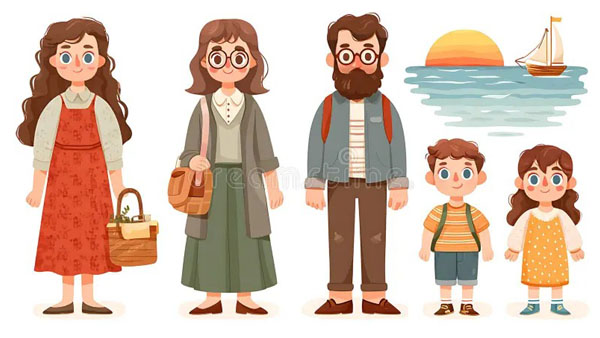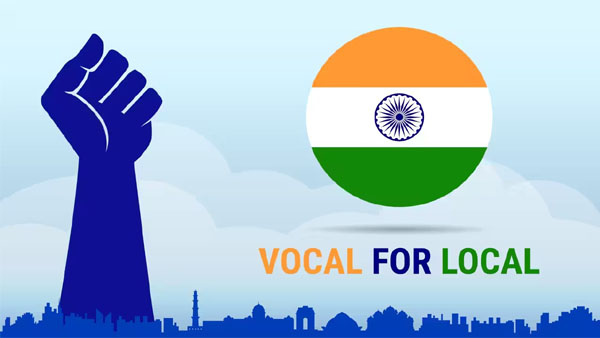By Satyabrat Borah
I still remember the evenings of my childhood. The sky would turn orange, and the moment the streetlights flickered on, we knew it was time to head home. Our knees were scraped, our shirts muddy, and our pockets full of marbles or stolen guavas. My mother never had to call twice. We would run back, wash our feet at the tube well, and sit around the dining table where the smell of dal and fish curry wrapped the whole house in warmth. We listened to our parents. Not because we were afraid, but because their words felt like the final line in a storybook. If Father said the sky was green, we would squint at the clouds until we almost believed him.
Today when I look at the children in my neighborhood, I see something else. They sit on the veranda steps, heads bent over glowing screens, thumbs dancing like fireflies. Their laughter is silent, trapped inside earphones. Their battles are fought with pixels, their friendships measured in likes and streaks. If I tell them to put the phone away and come play football, they look up with eyes that say, “But the game is almost over.” I want to scold them, to snatch the device and throw it into the pond like my father once threatened to do with my transistor radio. Yet something stops me. Because I have started to understand that their world is not smaller than mine. It is simply shaped differently.
Let me tell you about Riya, the girl who lives two houses down. She is fifteen, thin as a bamboo shoot, with a voice that cracks when she argues. One night her father, Ramen, stormed into her room at ten thirty and confiscated her phone. Riya cried so hard her shoulders shook. “I have a project due tomorrow,” she sobbed. “I was watching a video on climate change.” Ramen stood there, phone in hand, feeling like the villain in a movie he did not sign up to star in. The next morning he sat with her, watched the same video, and asked questions he had never thought to ask before. Where is the ice melting fastest? What happens to the fish? For the first time he saw his daughter not as a disobedient child but as someone trying to save a world he had only read about in newspapers.
This is the gap we keep stumbling over. We see rebellion where they see curiosity. We see wasted hours where they see learning. The phone is not just a toy; it is a library that fits in the palm, a teacher who never sleeps, a friend who answers at 2 a.m. when the house is quiet and the mind is loud. Of course there are dangers. I know a boy named Rahul who can quote every Fortnite skin but forgets to drink water unless reminded. His mother found him asleep on the couch at dawn, controller still in hand, eyes red as pomegranate seeds. The doctor said his posture is curving like a question mark and his eyesight is slipping. These are real problems. But shouting “Put it down!” does not solve them any more than shouting at rain stops the flood.
So what do we do, we who grew up with landlines and letters that took a week to arrive? First, we step into their world instead of dragging them into ours. My friend Pradip tried this. His daughter Jui spent hours making short dance videos. At first he grumbled about wasted time. Then one Sunday he asked her to teach him a step. They filmed it together—Pradip in his old office shirt, trying to pop and lock while Jui giggled so hard she dropped the phone. The video got twelve likes, mostly from Jui’s friends who could not believe Uncle had moved. But the bigger win was the hour they spent laughing, bodies moving in the same rhythm, hearts syncing without a single lecture.
Rules are necessary, but they work best when they come with replacements. My wife started “No Phone Saturdays.” The first week our son sulked like a cloud about to burst. We pulled out Ludo, rolled the dice, and suddenly the room filled with arguments over who cheated and whose turn it was to blow on the dice for luck. By the third Saturday he was the one reminding us to switch off the Wi-Fi. The phone did not disappear; it simply lost its throne for a few hours. We gave it a rival—real voices, real touch, real smell of popcorn burning in the kitchen.
Dreams have changed too. When we were young, the acceptable answers to “What do you want to be?” were doctor, engineer, teacher. Today children are YouTuber, game designers, and climate activists. My nephew wants to build virtual worlds where people can walk inside coral reefs and feel the temperature rise. I could laugh and say, “Get a real job.” Instead I ask, “Show me.” He opens an app, drags glowing blocks, explains light refraction like it is the simplest thing. I nod even when I do not fully understand, because respect is the first brick in any bridge.
We must update ourselves the way phones demand updates. Manoj Uncle, sixty-two years old, learned to use Instagram because his daughter said, “Papa, you have to see this filter.” Now he posts grainy photos of sunsets from 1992 and captions them with lines of poetry he wrote in college. His daughter reposts them with heart emojis. The distance between their generations shrinks to the width of a screen they both know how to swipe.
Bodies need moving, minds need quiet. Every evening my family walks to the riverbank. No phones allowed. We count egrets, argue about whether the water smells different after rain, kick pebbles into the current. Sometimes we say nothing at all. The silence is not empty; it is full of breathing. On the way back we buy roasted corn from the old man who fans the coals with a torn magazine. The smoke stings our eyes, the kernels burn our tongues, and for those few minutes the digital world feels very far away.
Responsibility grows in small handfuls. Give a child a chore and watch pride sprout. My niece washes dishes on Fridays. At first she sighed like the weight of the world rested on the sponge. Now she times herself, races the clock, sings along to whatever is stuck in her head. Last week she made pasta from a recipe she found online. The sauce was too salty, the noodles a little sticky, but we ate every bite and asked for seconds. She beamed like she had invented fire.
Talk like friends, not generals. When marks slip, ask “What happened?” instead of “Why did you fail?” The first opens a door; the second slams it shut. I remember my own father’s silence when I brought home a forty in math. It taught me shame but not fractions. Today when my son scores low, we sit with the paper between us. He explains where he got stuck. I explain where I once got stuck too. Mistakes become stories we share instead of sins we hide.
There is a boy in my colony who spends hours editing videos on an old laptop. His parents worried he was wasting his life. Then his short film about stray dogs won a school prize. The judge was a filmmaker from Mumbai who offered him an internship. The parents still worry—he is only sixteen—but now they worry with hope instead of fear. They bought him a better microphone. They learned words like “frame rate” and “color grading.” They did not surrender; they evolved.
We are not here to control the river but to build banks strong enough to guide it. Children will always flow faster than we expect. Our job is to clear the rocks, plant the trees, and sometimes wade in up to our knees so they know the water is safe. The phone will stay in their hands, but our voices can stay in their hearts. The screen will glow, but our stories can glow brighter.
One evening last month I found my son asleep on the sofa, phone slipped to the floor, a half-finished sketch of a rocket on the screen. I covered him with a blanket and sat nearby. In his sleep he murmured coordinates, fuel ratios, something about Mars. I smiled in the dark. My father never dreamed of other planets. His sky ended where the mango trees stopped. This boy’s sky has no edge. And tomorrow, when he wakes, I will ask him to teach me how to draw a thruster. Not because I need to know, but because he needs to know I am willing to learn.
That is the secret we grandparents, parents, uncles, and aunts must carry into this new century. The children are not broken versions of us. They are the next chapter, written in a language we are only beginning to read. Our task is not to erase their words but to add our own in the margins—gentle, curious, proud. When we do that, the rebellion softens into revolution, and the revolution, one day, becomes legacy.




